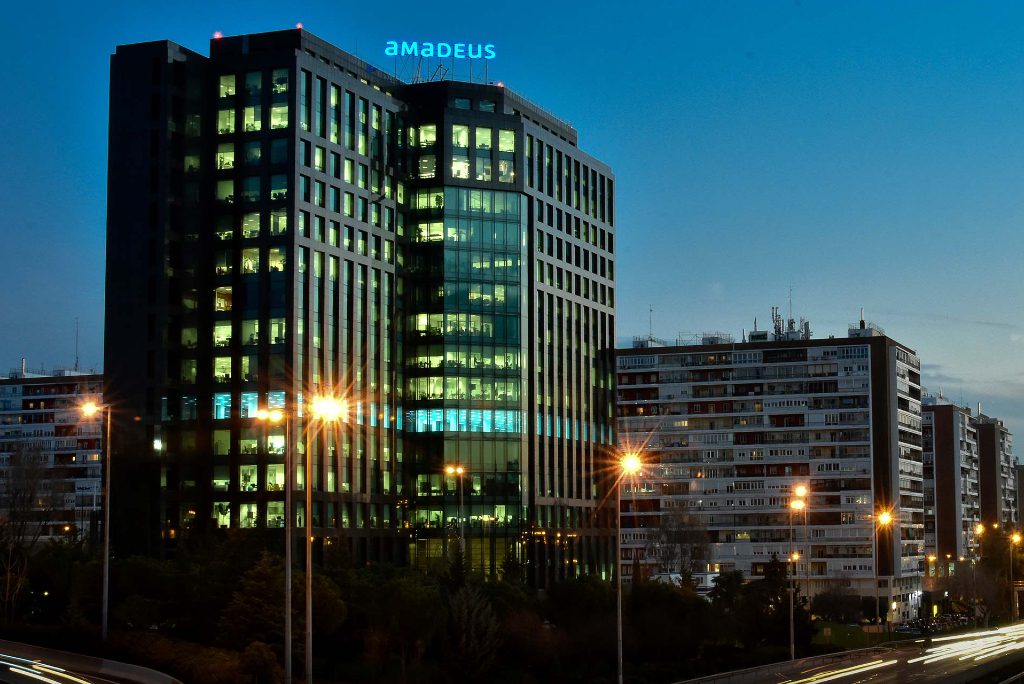Skift Take
Amadeus's deal with International Airlines Group shows a path forward in the contentious contract disputes it has had with many airlines over distribution costs and methods. The technology giant's earnings report on Friday was broadly in line with expectations.
Amadeus said on Friday it had signed a contract with International Airlines Group (IAG) to distribute airfares for British Airways, Iberia, Aer Lingus, and Vueling to travel agents through Amadeus’s reservation systems using the new distribution methods the airline group has championed. The deal is a notable about-face for the airline group and a victory for the technology giant.
In 2017, International Airlines Group added a surcharge on tickets booked through the three largest middlemen for distributing tickets to travel agencies: Amadeus, Sabre, and Travelport. It followed the move of Lufthansa Group, which pioneered the effort in 2015. Air France/KLM Group soon copied its peers. All of the airlines began using their own technology to distribute their content without the fees to travel agencies to gain negotiating leverage with the tech middlemen.
But in September 2020, Air France/KLM Group signed a landmark deal with Amadeus. It agreed to distribute its content without the same surcharge through Madrid-based Amadeus. The caveat was that Amadeus had to use newer methods of selling that it preferred, namely the new distribution capability (NDC). International Airlines Group has now signed a similar deal. It didn’t discuss the move in its earnings report on Friday.
Join Us at the Skift Business Travel and Future of Work Summit on March 17
That leaves Lufthansa Group standing alone among the big Western European network carriers in resisting a deal. At Skift’s Online Travel and Distribution Summit on February 17, Amadeus and Lufthansa Group executives said that their talks were cordial and ongoing but that agreement on commercial terms remained elusive. (Paid access via Skift Master Pass.) Lufthansa Group did sign terms with Sabre in December.
Amadeus aims to have plugged into British Airways and Iberia to deliver new distribution methods in the second half of this year.
For travel agencies, one of the big changes will be the wider availability of so-called “continuous pricing.” Until now, International Airlines Group was offering agencies that plugged into its data feed a broader array of price points for long-haul flights than the carrier passed through Amadeus. Lufthansa Group on October 20 began to offer continuous pricing as well. The trend will gain momentum.
“This groundbreaking agreement sets the stage to change our industry,” said Cliff Trotta, head of distribution at Iberia.
Amadeus Had a Tough Year
The paralysis of travel was reflected in the financial results that Amadeus reported Friday. The company recorded full-year losses of about $609 million (€505.3 million) in 2020 against profits of more than $1.34 billion (€1.113 billion) in 2019.
In 2020, Amadeus generated approximately $2.63 billion (€2,174 billion) in revenue, down 61 percent from a year earlier. Gross operating income, or earnings before interest, taxation, depreciation, and amortization, contracted by 89.8 percent to $276 million (€227.8 million) year-over-year.
“We still think the recovery will be swift once vaccines are widely spread,” wrote Stacy Pollard, of J.P. Morgan Cazenove, in a recent note.
Amadeus executive comments on Friday implied optimism about vaccines and other public health steps.
“This week, we’ve seen a strong recovery in air bookings in Western Europe,” said Amadeus CEO Luis Maroto.
A recovery would be welcome and overdue. During the fourth quarter of 2020, Amadeus reported an adjusted loss of $107 million (€88.2 million).
Amadeus’s distribution division, which is the most impacted by travel volumes. The International Air Transport Association’s reported air traffic data and forward bookings predictions have limited Amadeus’s revenue and profit expectations in the first half of 2021. Amadeus declined to offer analysts guidance until the public health situation is clearer.
Yet some analysts worry that business travel, which Amadeus derives a significant portion of its distribution profitability from, may be slow to recover to past levels.
“We believe that some portion of the reduction in corporate travel may be permanent on a relative basis, as businesses have found significant efficiencies in video conferencing, virtual marketing events, remote working, etc. – and a combination of travel and virtual interactions will be the new normal,” said Pollard at J.P. Morgan Cazenove.
One signal supporting the short-term notion that business travel will be slow to recover is that in recent month Amadeus has seen a greater recovery — “a bit better” — in its bookings done via its Navitaire passenger service system which tends to help airlines that are low-cost carriers serving mostly leisure travelers, compared with its Altea passenger service system, which tends to serve network carriers with more business travelers.
Register Now For the Skift Business Travel and Future of Work Summit on March 17
The Daily Newsletter
Our daily coverage of the global travel industry. Written by editors and analysts from across Skift’s brands.
Have a confidential tip for Skift? Get in touch
Tags: amadeus, earnings, gdses, global distribution systems
Photo credit: The offices of Amadeus in Madrid. Amadeus, the travel technology company, reported during the fourth quarter of 2020 an adjusted loss of $107 million (€88.2 million). Amadeus
